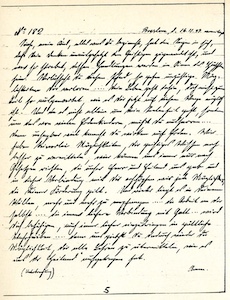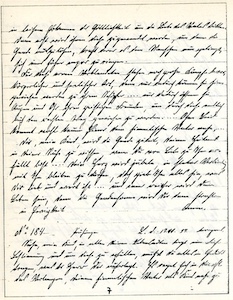All results of spiritual research must be recognized if they are subjected to a serious examination and if the examiner himself has the desire to recognize the pure truth. For if he seeks the truth then he also seeks God. But if the will for truth is weak, then a serious examination is also questionable as soon as he is presented with spiritual goods. Then even the most convincing evidence can be given to him, it will not persuade him to acknowledge something because he will oppose it with his intellectual thinking, which moves in erroneous directions. And therefore the human being is then deprived of deeper knowledge, he lacks all truth, he has no understanding for the spiritual world, he does not respect the laws of the inhabitants of the spiritual world, that is, he does nothing to allow those forces to have an effect on him because he does not acknowledge them. And yet he is considered worldly wise.... He transfers his conviction to people of the same spirit without encountering the resistance to which the bearers of truth are exposed. Error asserts itself and truth finds little recognition. And this is brought about by the free will of man, on whom God imposes no constraint and allows him to use his intellect as he sees fit. However, due to the freedom of will he is also responsible for his thinking, for just as he lets the opportunity pass by which would bring him the recognition of truth, he could also make use of it.... For the thinking person should use his intellect in the right way, he should weigh up all pros and cons and then make a decision; he should not remain one-sided as long as he is not inwardly convinced that he is knowledgeable. And he will lack this conviction as long as he is still in error. Only the pure truth gives him the innermost conviction of being knowledgeable. The human being as such knows about the limitation of his knowledge, and he must therefore evaluate all results of human intellectual thinking as deficient knowledge, consequently he cannot defend the unconditional truth of these with full conviction. Deeper knowledge has to be gained in a way that excludes intellectual thinking, although it then has to be absorbed and processed with the intellect in order to become the human being's spiritual property. And this knowledge, which comes from the heart, which is imparted to him by the spirit in the human being who, as a part of God, knows everything, also gives the human being the conviction that he knows the truth, and then he need never surrender it again, he need not fear his fellow human being's intellectual research, for this will not be able to refute or weaken his findings........ once the truth has been gained and has become spiritual property it can no longer be suppressed. But error is changeable, and yet it remains error until pure truth has displaced it.... until the human being's free will earnestly desires the truth and accepts it without resistance....
amen










